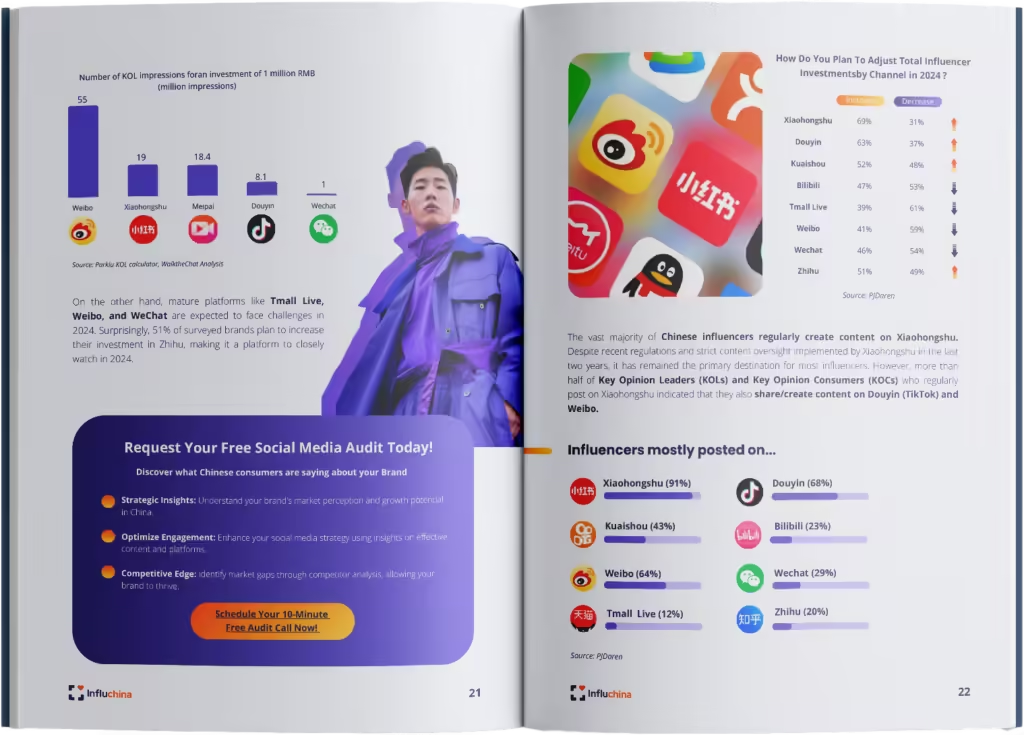TL;DR – What is Tmall Global and why it matters for your brand
Tmall Global is Alibaba’s cross-border marketplace that lets international brands sell to consumers in mainland China without setting up a local entity or holding inventory inside the country.
Products are shipped from overseas or via bonded warehouses in free trade zones, so you can test the China market, build awareness and reach cross-border shoppers with lower structural barriers.
Compared with Tmall Classic, Tmall Global has lighter legal and registration requirements but longer delivery times and higher deposits; it’s designed for new-to-China or early-stage brands, while Tmall Classic suits brands already established locally.
China’s cross-border e-commerce policies (like bonded warehouses, simpler import procedures and preferential tax rates on eligible orders) make platforms such as Tmall Global more attractive for foreign brands and more affordable for consumers.
To succeed, you still need strong localisation, compliant operations and consistent marketing: Chinese-language product pages, high-quality visuals, authenticity proof, influencer campaigns and a reliable Tmall Partner (TP) to manage daily operations and optimisation.
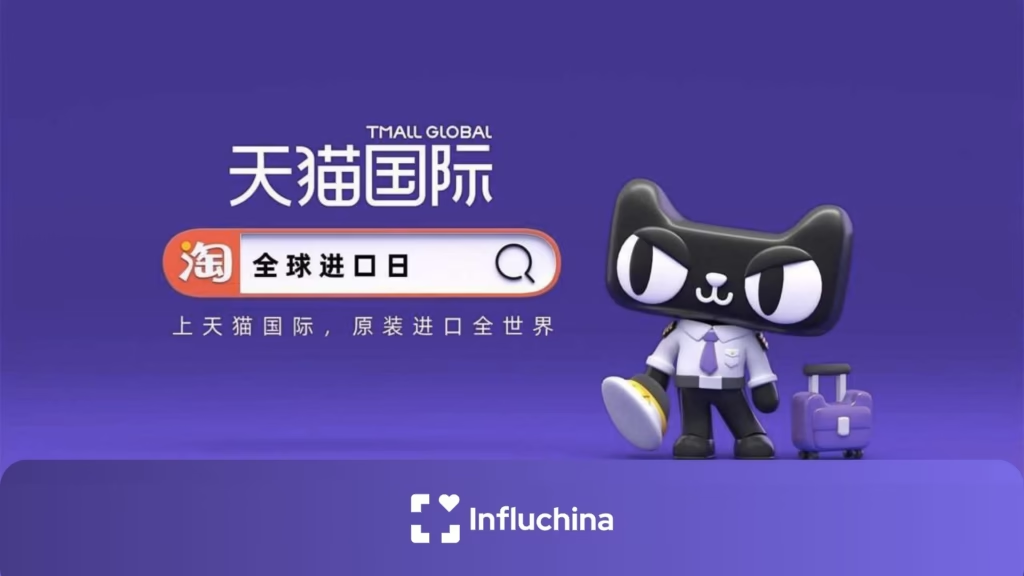
Every company will surely be aware of the most popular and used e-commerce social network in China, Tmall, since huge brands from around the world have consolidated stores there to sell their products and services to Chinese consumers. However, Tmall Global is not that famous.
Every company will surely be aware of the most popular and used e-commerce social network in China, Tmall.
In addition, we must take into account that it is particularly relevant that any company interested in effectively reaching Chinese consumers must have an online store on Tmall Global since they increasingly use digital media to make everyday purchases and even decisions.
On the contrary, not everyone understands the sector or the importance of a brand of meeting and reaching the Chinese public, and this platform is one of the most efficient ways to achieve these goals.
For these reasons, this guide will provide all the details regarding Tmall Global and compare said platform to Tmall Classic. However,we will focus on Tmall Global, including the requirements and advice for selling and the importance of having a Tmall Partner.
This guide is aimed at international SMEs, e-commerce brands and established retailers who want a clear, step-by-step understanding of how Tmall Global works and whether it is the right entry route into China.
It is especially important to have an online store on Tmall Global for any company interested in effectively reaching Chinese consumers
If you are interested in having a reliable Tmall Partner for International Brands in China to help introduce your brand effectively on Tmall Global, do not hesitate to contact InfluChina, a marketing agency in China that specializes in promoting the presence of foreign companies in the Chinese market through chinese social networks, e-commerce platforms, and influencers.
1. What is Tmall?
Tmall is an e-commerce platform founded by the giant Alibaba Group. It allows brands and companies to sell their products to Chinese consumers. The platform is multi-category, offers a large number of items, and targets a very varied audience, which means that there will be many potential customers from across the Chinese market.
This is because the online shopping trend in China is very developed, and there are no barriers to using electronic payments. In fact, Chinese customers move from one app to another during their shopping experiences, as all digital platforms are now closely connected.
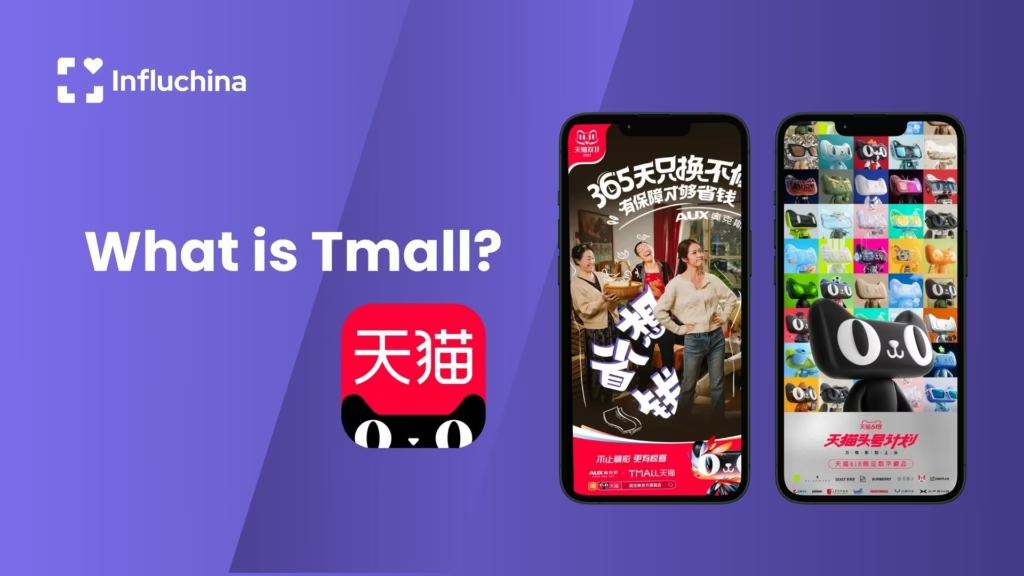
Tmall is an e-commerce platform where brands and companies can sell their products to Chinese consumers.
Being owned by Alibaba, Tmall is also part of an ecosystem of e-commerce platforms, allowing the parent company to interconnect its e-commerce applications with each other. Taobao undoubtedly has the most connections with Tmall. In fact, Tmall is a standalone app, but it is also integrated into Taobao.
However, as we will now see, there are two aspects: Tmall, which we just mentioned, and Tmall Global, which is the one that interests us the most in this guide.
Tmall Global at a Glance
Cross-border marketplace under Alibaba (tmall.hk) for imported goods
Lets overseas brands sell into mainland China without a local entity
Uses bonded warehouses or direct shipping from overseas
Ideal for testing the China market and building awareness with cross-border shoppers
2. What is Tmall Global? (Cross-border Marketplace for International Brands)
Alibaba launched Tmall Global in February 2014 as a cross-border e-commerce platform designed specifically for international brands and retailers to sell directly to Chinese consumers. It enables overseas companies to enter the Chinese market without establishing a local entity or maintaining inventory in mainland China.
Through Tmall Global, products are imported from overseas and sold online to consumers in mainland China. The platform supports multiple languages and currencies, making it easier for international brands to manage operations remotely.
While the platform is accessible from mainland China, it is technically hosted under the domain Tmall.hk and is also available to users in Hong Kong, Macau, and Taiwan. All transactions are considered cross-border, and fulfillment is typically handled through bonded warehouses in free trade zones or shipped directly from overseas.
Tmall Global offers a highly effective route for brands to test the Chinese market, build brand awareness, and reach a large and growing audience of cross-border shoppers.
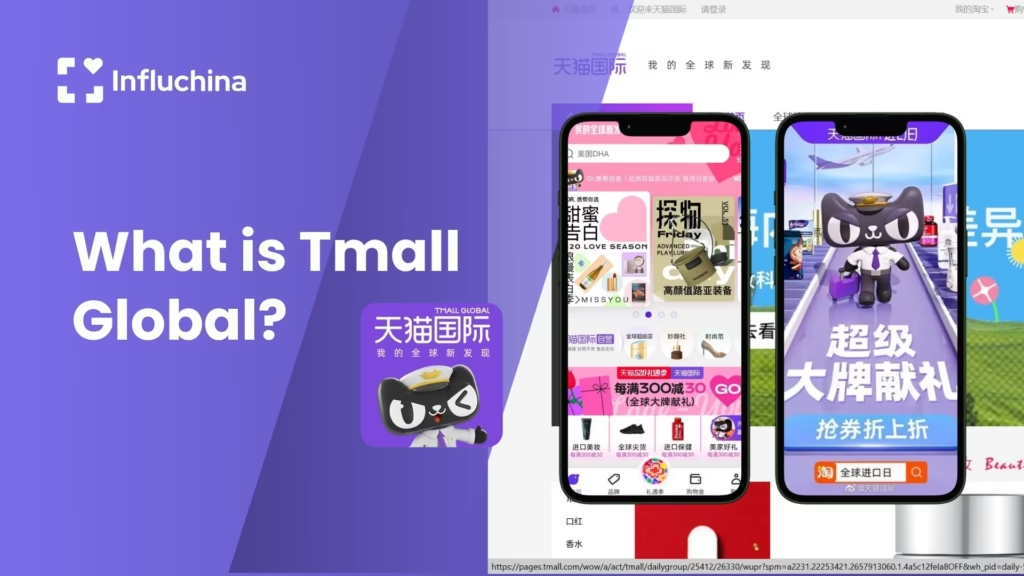
Is Tmall Global Right for Your Brand? (Quick Checklist)
Before committing to a Tmall Global strategy, it helps to check whether your brand profile fits the platform’s strengths:
You don’t have a Chinese entity yet
Tmall Global is designed for overseas brands without a local company or onshore registration in China, making it an ideal first step into the market.Your products benefit from an “imported” positioning
Categories such as beauty, personal care, health supplements, baby products, premium food & beverage and lifestyle brands often perform well on cross-border platforms because Chinese consumers seek foreign quality and safety.You can accept slightly longer delivery times at first
Cross-border orders usually arrive in 7–15 days via bonded warehouses or international shipping, which is acceptable for many imported products but slower than domestic Tmall.You are ready to invest in branding and marketing
Tmall Global gives you access to a large, high-intent audience, but success still depends on traffic. You will need budget for content, ads, and KOL/KOC campaigns to build visibility and trust.You can meet cross-border compliance and operational standards
Even though you avoid full domestic product registration, Tmall Global still requires accurate labelling, authenticity assurance, responsive customer service and solid logistics.
If you can answer “yes” to most of these points, Tmall Global is likely a strong option for your China entry or expansion strategy.
3. Tmall Global vs Tmall Classic: Key Differences
When considering expansion into China, it’s essential to understand the differences between Tmall Global and Tmall Classic. Both platforms belong to Alibaba Group, but they cater to brands at different stages of market entry and development.
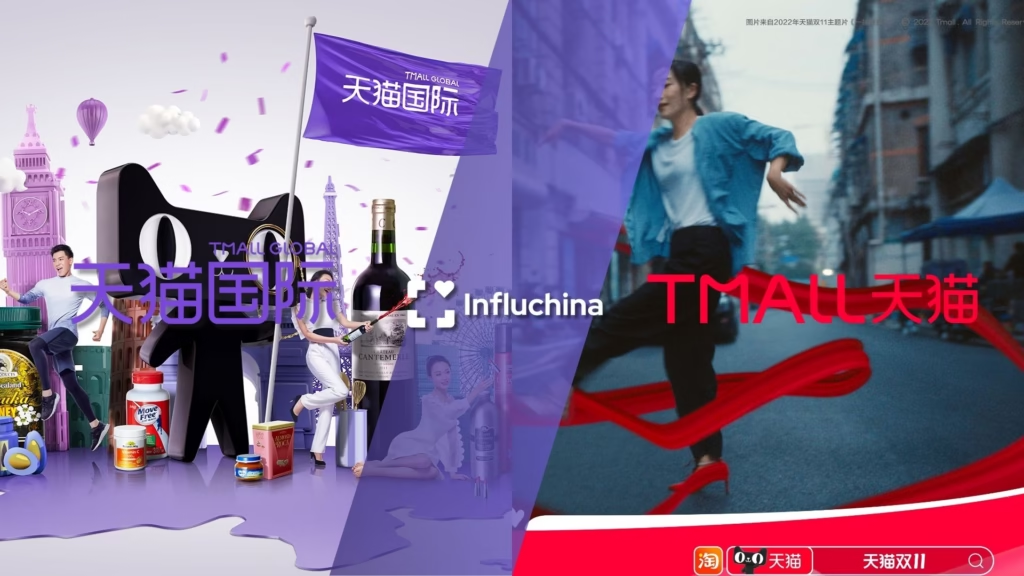
Market Entry & Legal Requirements
- Tmall Global is designed for international brands without a Chinese business license or local entity. It allows foreign companies to sell directly to Chinese consumers while operating from overseas.
- Tmall Classic requires that the seller have a Chinese-registered business, a physical presence in China, and product compliance approvals from Chinese authorities.
This makes Tmall Global an accessible option for brands testing the waters, whereas Tmall Classic suits companies already established in China.
Logistics & Warehousing
- Tmall Global uses bonded warehouses in free trade zones or international shipping. Products can be stored closer to China for faster fulfillment, or shipped directly from the brand’s home country.
- Typical delivery time: 7 to 15 days.
- Tmall Classic enables domestic warehousing and local distribution, which results in significantly faster delivery (usually 1 to 3 days) and better alignment with local customer expectations.
Operational and Administrative Load
- Tmall Global offers a lighter compliance load, with no need for product registration in China. However, sellers must still provide detailed product listings, translated content, and local customer service.
- Tmall Classic involves more complex operations, including product certification, local returns handling, and comprehensive after-sales support.
Target Customer Segments
- Tmall Global is ideal for targeting cross-border shoppers, who are often more affluent, open to imported goods, and willing to wait for delivery.
- Tmall Classic reaches a broader and more mainstream customer base, who expect fast delivery, local service, and competitive pricing.
Marketing & Exposure
- Tmall Global offers curated exposure to consumers seeking international products. However, brands may need to invest more in marketing and branding to gain traction.
- Tmall Classic benefits from deeper integration within the Alibaba ecosystem, with more traffic, tools, and visibility options.
Costs and Deposits
- Tmall Global generally requires higher security deposits to mitigate the risk of overseas sellers failing to deliver.
- Tmall Classic has slightly lower entry deposits, but higher operational and regulatory costs due to local compliance.
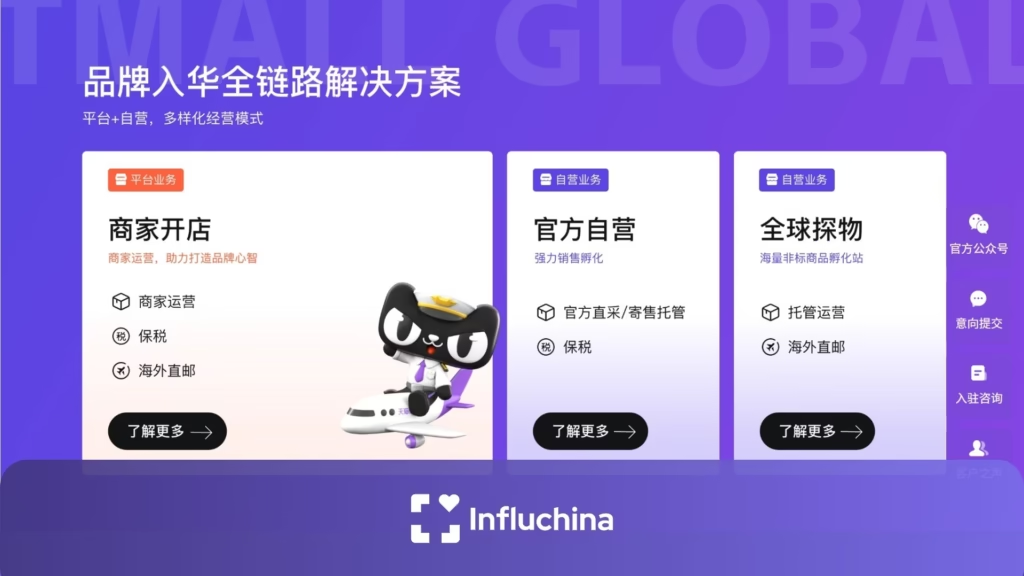
Summary
Feature | Tmall Global | Tmall Classic |
Legal Entity in China | Not Required | Required |
Product Registration | Not Required | Required |
Shipping | International or Bonded | Domestic |
Delivery Time | 7–15 days | 1–3 days |
Target Market | Premium, imported goods seekers | Mass-market consumers |
Best For | New-to-China brands | Established, localized brands |
Tmall Global is a flexible, low-barrier entry point for brands seeking to explore the Chinese market, while Tmall Classic is a robust solution for brands committed to long-term, localized growth in China.
4. Steps to Open a Flagship Store on Tmall Global (Requirements & Process)
Quick Overview: Steps to Open a Tmall Global Store
Confirm eligibility – ensure your brand has valid overseas registration, trademarks and cross-border product compliance.
Choose your store type – flagship, exclusive, marketplace flagship, franchise or galaxy franchise, based on your ownership and assortment.
Select a Tmall Partner (TP) – most international brands work with a certified TP or agency for setup and daily operations.
Prepare documentation – business license, trademark certificates, brand authorisation, product certifications and financial information.
Apply and open your store – submit application through Tmall Global, go through review, then set up your storefront, listings and logistics.
Launch and optimise – run campaigns, collaborate with KOLs/KOCs, and adjust assortment, pricing and promotions based on data.
Tmall Global offers several store formats for international brands, with the flagship store being the most popular and credible option. Opening a store involves a series of steps and eligibility checks, depending on the type of brand and trademark status.
Store Types on Tmall Global
Tmall Global classifies stores into several categories based on brand ownership, authorization rights, and the product range.
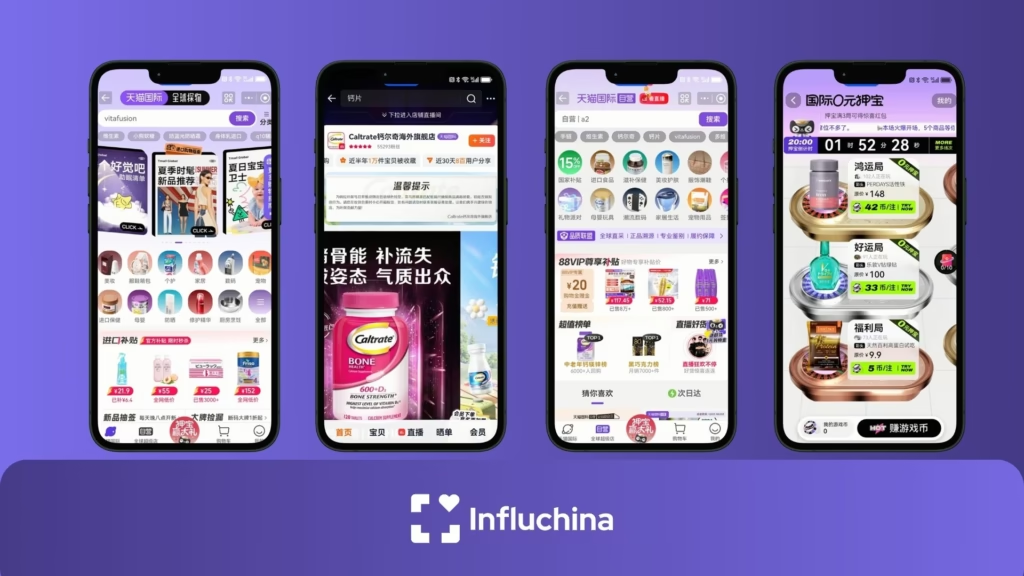
Flagship Store
A flagship store is the most authoritative and brand-centric store type on Tmall Global.
- Opened by the brand owner or an exclusive licensed distributor.
- Only allowed to sell products under the officially registered trademark.
- If a brand owns multiple trademarks, the applicant must be the legal owner or hold exclusive rights for all trademarks.
- A flagship store can represent multiple brands only if all trademarks are legally owned by the store operator.
- Ideal for brands that want to maintain full control over product positioning, storytelling, and customer experience.
Marketplace Flagship Store
These stores are opened by large-scale retailers or multi-brand merchants, such as:
- Offline chain supermarkets
- Department stores
- Online multi-brand platforms
- Typically offer a diverse product catalog across multiple categories.
- Sellers must be well-established enterprises with a recognized retail background.
- Entry is generally by invitation or formal application through Tmall Global.
- Useful for businesses with broad distribution capabilities and brand partnerships.
Exclusive Store
Exclusive stores are designed for authorized sellers of a specific brand.
- Requires a formal authorization letter or agreement from the brand owner.
- Only permitted to sell products from the designated brand.
- Often used by regional distributors or licensees operating on behalf of international brands.
- Offers strong credibility if aligned with a known brand.
Franchise Store
Franchise stores allow merchants to sell two or more brands within the same product category.
- Suitable for distributors or resellers with access to multiple brands.
- Common in categories like cosmetics, health supplements, or fashion accessories.
- Flexibility to introduce a broader assortment while staying within a defined vertical.
Galaxy Franchise Store
Galaxy franchise stores are a commission-based model, where sellers list products from other Tmall Global flagship or direct-sale stores.
- No need to maintain independent inventory.
- Appeals to retail aggregators or marketplace-style sellers.
- Enables testing of various categories without upfront stock investment.
- Operate across multiple business categories with wider customer reach.
Outlet Store / Special Offer Store
These stores are used for selling:
- Discounted branded products
- Clearance items
- Seasonal or customized items
- Common for managing excess inventory or product lines nearing expiration.
- Attract price-sensitive customers and can be positioned as value-driven brand extensions.
Comparison Table: Tmall Global Store Types
Store Type | Who Can Open It | Product Scope | Ideal For |
Flagship Store | Brand owner or exclusive rights holder | Single or multiple owned brands | Brand control and reputation |
Marketplace Flagship | Chain retailers, department stores | Multi-category | Broad assortments from trusted retailers |
Exclusive Store | Authorized distributor | One specific brand | Regional distributors with brand approval |
Franchise Store | Multi-brand merchants | Same product category | Resellers with niche brand portfolios |
Galaxy Franchise Store | Commission-based resellers | Multiple categories | Test selling without holding inventory |
Outlet/Special Offer | Brand or authorized seller | Discounted/customized products | Inventory clearance and seasonal promotions |
5. Government Support for Cross-Border E-commerce in China
One of the key drivers behind the growth of platforms like Tmall Global is the strong support from the Chinese government for cross-border e-commerce. Over the past decade, China has actively created a regulatory environment that favors foreign brands selling directly to Chinese consumers online.
Milestones in Cross-Border E-commerce Policy
Since 2012, the Chinese government has:
- Allowed foreign goods to enter China without going through traditional import registration processes.
- Simplified the overall business model for cross-border trade, enabling brands to sell directly via platforms like Tmall Global.
- Encouraged the development of bonded warehouses in free trade zones, improving delivery times and logistics efficiency.
These measures have made it significantly easier for international companies to test and enter the Chinese market.
Cross-Border Tax Incentives
As of January 1, 2019, new e-commerce regulations introduced a more favorable tax system for cross-border purchases:
- Zero customs duties on individual orders below 5,000 RMB (~$700).
- An annual cap of 26,000 RMB per user for cross-border purchases (~$3,600).
- Import VAT and consumption tax are charged at only 70% of the standard domestic rate.
This preferential policy dramatically reduces the cost of cross-border products for consumers, making platforms like Tmall Global even more attractive.
Key Cross-Border E-commerce Policies (Tmall Global Context)
Policy Area | What It Means | Impact for Brands Using Tmall Global |
Simplified CBEC model | Cross-border sales allowed without traditional import registration | Easier market entry without full domestic product filing |
Bonded warehouses | Goods can be stored in free trade zones near China | Faster delivery than shipping every order from overseas |
Zero customs duty cap | 0% customs duty for single orders below 5,000 RMB* | More competitive pricing for many cross-border orders |
Annual purchase limit | Higher annual CBEC quota per consumer | Enables repeat purchases and larger yearly volumes |
Reduced VAT & tax rate | Import VAT & consumption tax charged at a reduced effective rate | Lowers end price for consumers, boosts cross-border demand |
*Exact thresholds may change over time; always confirm latest CBEC rules.
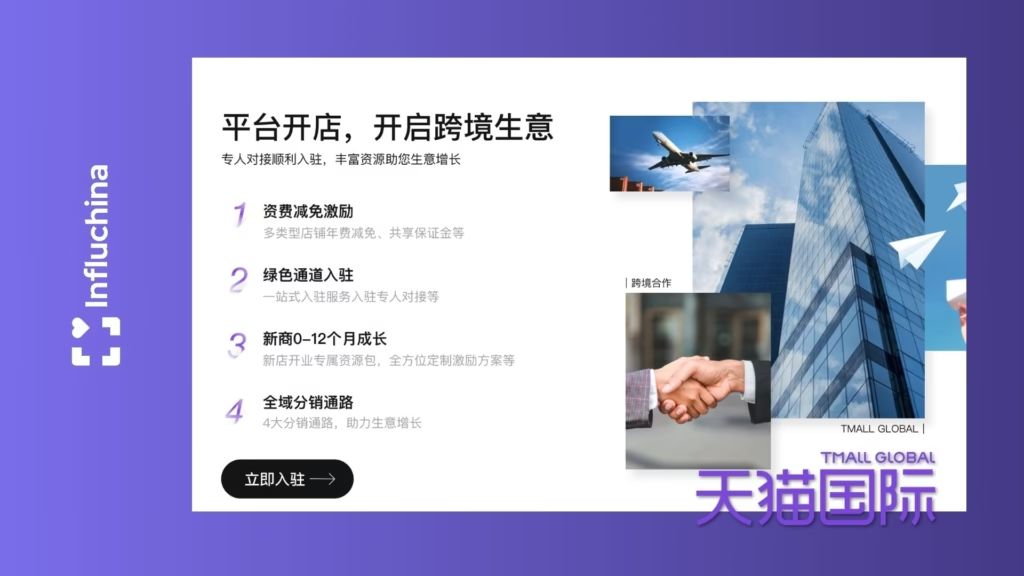
Tmall Global vs. Daigou
These regulatory benefits have also helped reduce reliance on Daigou (代购)—the informal network of personal shoppers who buy foreign products abroad and resell them in China.
- While Daigou lacks transparency, after-sales service, and consumer protection, Tmall Global offers a secure, official, and traceable purchasing experience.
- Brands can now reach Chinese consumers directly and legally without the risks associated with unauthorized resellers.
6. Best Practices for Selling on Tmall Global
Successfully launching and operating a store on Tmall Global requires more than simply listing your products. Brands must adapt to local consumer expectations, maintain high operational standards, and leverage strategic marketing tools to gain traction in China’s competitive digital marketplace.
Labelling and Product Presentation for Chinese Consumers
Localization is a key success factor on Tmall Global. Chinese consumers are detail-oriented and highly visual, expecting product listings that provide a full experience:
- Product Pages: Must include Chinese-language descriptions, with detailed specifications, benefits, usage instructions, and certifications. Avoid short, generic listings—Chinese consumers expect comprehensive product narratives.
- Visual Content: Use high-resolution images and videos that show the product from multiple angles, demonstrate use, and highlight unique selling points.
- Brand Storytelling: Share your brand origin, mission, and values to build trust and emotional connection.
- Authenticity Assurance: Clearly communicate proof of authenticity through packaging details, certificates, or QR codes. Chinese shoppers are cautious about counterfeits, especially with premium or imported goods.
Influencer Collaborations: KOLs, KOCs and Live Streaming
Tmall Global leverages China’s influencer ecosystem (KOLs and KOCs) to help international brands build credibility and visibility in the market.
Alibaba’s “Walk of Fame” program (2020) partners with top-tier Chinese influencers and celebrities to amplify cross-border brands. Campaigns have featured endorsements from:
- Li Jiaqi (Austin Li) – The “Lipstick King” (美妆博主), known for live-streaming sales records on Tmall.
- Viya – Former queen of live-streaming, collaborated with brands like Nike and Estée Lauder.
- Xiao Yang – Comedy KOL with massive reach, ideal for viral campaigns.
- Wang Hong (Key Opinion Leaders) – Fashion and luxury influencers like Mr. Bags (包先生) for luxury brands.
For niche audiences, micro-influencers (KOCs) on Xiaohongshu (RED) or Douyin drive authentic engagement. Agencies like InfluChina specialize in matching brands with the right creators, from livestream stars to Weibo experts.

Operational and Financial Requirements (Deposits, Performance & Compliance)
To maintain marketplace quality and consumer confidence, Tmall Global enforces strict operational standards:
- Security Deposits: Depending on your store type and category, deposits range from 25,000 RMB to 100,000+ RMB. These ensure accountability and compliance with platform rules.
- Performance Monitoring: If your store receives quality complaints or low ratings, Tmall may require a higher deposit (up to 300,000 RMB) and initiate warnings.
- Annual Renewals: Deposits must be renewed annually, and sellers are expected to maintain consistent service levels.
- Multiple Categories: If your store sells products in multiple categories, the highest applicable deposit amount will be required. Categories can be added or removed with approval.
Maintaining a strong operational record will not only improve your store ranking but also lower the risk of penalties and increase customer trust.
7. Why a Tmall Partner (TP) Is Key to Success on Tmall Global
For most international brands, partnering with a certified Tmall Partner (TP) is the most efficient way to manage everyday operations, reduce risk and scale performance on Tmall Global.
Working with a Tmall Partner (TP) is one of the most effective ways for international brands to succeed on Tmall Global. These agencies are officially certified by Alibaba to assist foreign companies in managing their e-commerce operations in China.
Benefits of Partnering with a TP
- Localized Expertise: TPs understand Chinese consumer behavior, platform algorithms, and best practices, helping you avoid costly mistakes.
- Faster Market Entry: With their technical know-how, TPs can streamline store setup, documentation, and regulatory compliance.
- End-to-End Support: A TP manages everything from logistics to marketing, allowing your team to focus on product and brand strategy.
- Performance Optimization: Through regular analysis and reporting, TPs continuously adjust tactics to boost visibility, conversion, and ROI.
InfluChina: Your Trusted Tmall Partner
At InfluChina, we specialize in helping international brands succeed in China’s digital ecosystem. As a full-service Tmall Partner, we offer:
1. Store Registration & Design
- Guidance through the registration and approval process
- Storefront design that aligns with Chinese consumer expectations
- Optimization for mobile-first browsing and high engagement
2. Customer Service & Store Operations
- Daily operations including product listing updates and live chat management
- Chinese-language customer service to ensure quick and culturally appropriate responses
- Ongoing store maintenance and promotional calendar planning
3. Branding, Advertising & Campaign Execution
- Brand localization strategy to connect with Chinese values and trends
- WeChat and Xiaohongshu content marketing
- KOL/KOC influencer campaign management
- Special campaign execution for key sales events like Double 11 and 618 Festival
With deep knowledge of both Western and Chinese digital cultures, InfluChina ensures your brand doesn’t just launch on Tmall Global—it thrives.
8. Conclusion: Why Tmall Global Is Your Gateway to China
Entering the Chinese market can be challenging, but Tmall Global offers one of the most streamlined, scalable, and secure ways for international brands to reach Chinese consumers. With a low barrier to entry, supportive government policies, and growing demand for imported goods, the platform is ideal for testing and expanding your business in China.
From choosing the right store type to crafting localized product listings and leveraging influencer marketing, success on Tmall Global requires thoughtful planning and execution. By partnering with a certified Tmall Partner like InfluChina, you can ensure your brand is positioned for sustainable growth in this dynamic and competitive environment.
Whether you’re a niche startup or an established global brand, Tmall Global provides the tools, visibility, and access you need to build awareness, gain customer trust, and scale your business in one of the world’s most exciting markets.
Ready to take the first step? Contact InfluChina today and let our experts guide your journey into China’s thriving digital economy.
FAQ
Frequently Asked Questions about Tmall Global (FAQ)
What is the difference between Tmall and Tmall Global?
Tmall is designed for brands with a local business entity in China, while Tmall Global allows international brands to sell directly to Chinese consumers without needing a local office or warehouse. Tmall Classic supports local delivery; Tmall Global focuses on cross-border fulfillment.
Do I need a Chinese company to sell on Tmall Global?
No, one of the key advantages of Tmall Global is that you can sell without a Chinese-registered company. However, you do need a legal business entity outside China and meet platform requirements, including trademark registration and security deposit.
How much does it cost to open a store on Tmall Global?
Costs vary by store type and product category, but typically include a security deposit (starting at ¥25,000), annual technical service fee (¥30,000–¥60,000), and a commission on sales (2%–5%). Additional costs may include logistics, customer service, and marketing.
How long does it take to launch a Tmall Global store?
Opening a Tmall Global store usually takes 1 to 2 months, depending on your readiness with documentation, product listings, and logistics setup. Working with a certified Tmall Partner can speed up the process.
Can I manage Tmall Global operations from overseas?
Yes. Tmall Global is designed for overseas management. However, many brands choose to work with a Tmall Partner (TP) to handle local operations like customer service, marketing, and daily store management in China.
What products sell best on Tmall Global?
Top-performing categories include beauty and skincare, health supplements, maternity and baby products, pet food, and fashion. Products perceived as high-quality, authentic, and international tend to perform well among Chinese consumers.
Is Tmall Global better for testing or long-term scaling?
Tmall Global is ideal as a test and entry channel because it lets you sell into China without local registration and full domestic compliance, making it easier to “test the waters”.
If performance is strong and long-term commitment grows, brands often keep their Tmall Global presence while later adding domestic Tmall or other local channels to reach a broader mass audience with faster delivery and deeper integration.
Why should I work with a Tmall Partner (TP) instead of doing everything myself?
A certified Tmall Partner is officially recognised by Alibaba to help foreign brands run their e-commerce operations in China. A TP typically provides:
local expertise on consumer behaviour and platform rules
faster setup and smoother documentation and compliance
end-to-end support (store design, operations, logistics, customer service)
performance analysis and ongoing optimisation of campaigns and promotions
InfluChina, for example, offers store registration and design, customer service and operations, plus branding, advertising and KOL/KOC campaign management around key events like Double 11 and 618, so your brand doesn’t just launch on Tmall Global but can actually grow there.

